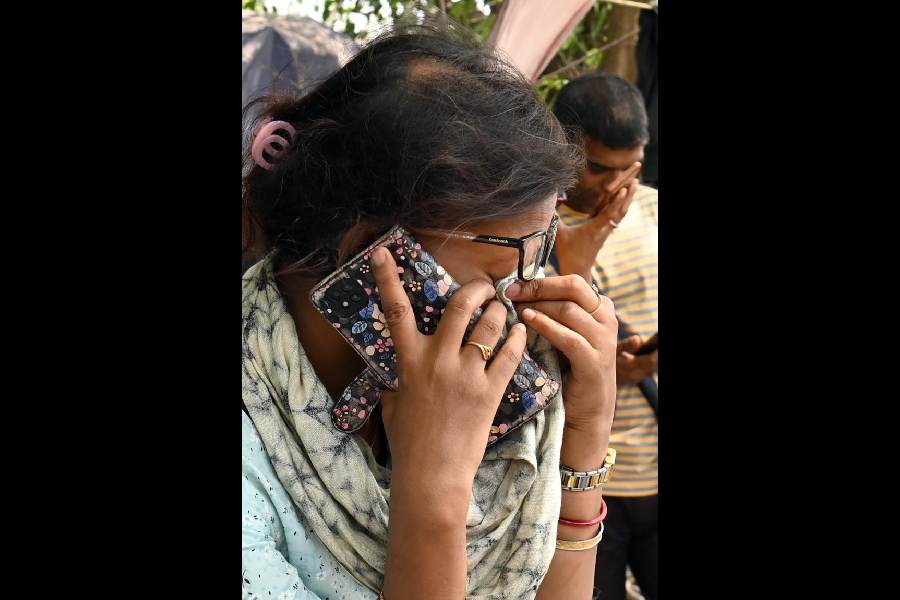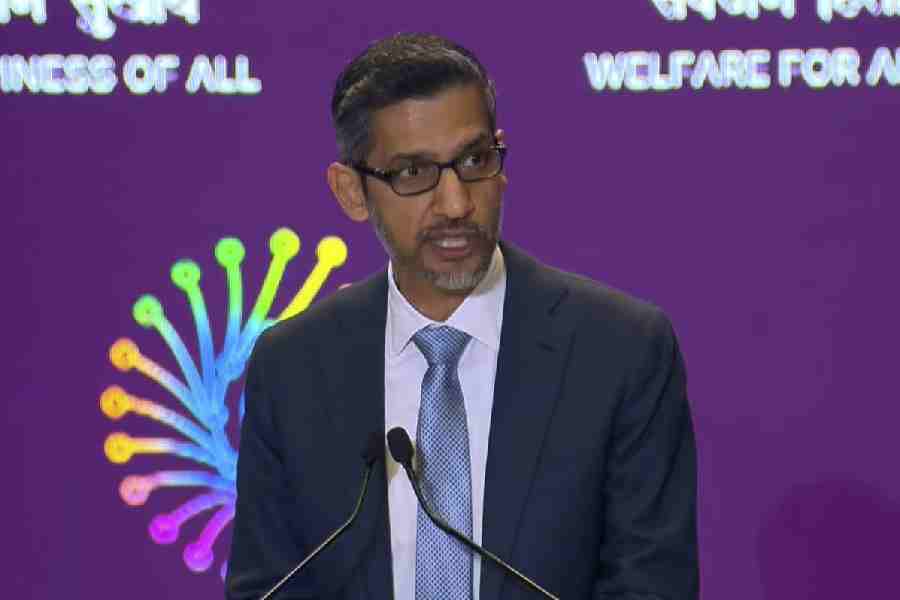The Supreme Court on Thursday upheld the dismissal of 25,000-odd teaching and non-teaching staff recruited to government-aided schools in Bengal, citing manipulation and a cover-up, in a huge embarrassment for the Mamata Banerjee government in a hot-button political issue.
The court, however, gave a second chance to those among the sacked candidates against whom no specific malpractice has been established: they can appear in the next round of recruitment tests with appropriate age relaxations. The disabled recruits, too, can appear in these tests, while keeping their jobs in the interim as a humanitarian concession.
Justifying the mass terminations, the apex court said the “entire selection process has been vitiated and tainted beyond resolution” as “manipulations and frauds on a large scale, coupled with the attempted cover-up, have dented the selection process beyond repair and partial redemption”.
Calcutta High Court had last April cancelled these appointments, saying it was impossible to know which of them was legal and which illegal, while examining a cash-for-jobs scandal that had led to the arrest of a senior state minister.
The Bengal government had appealed before the apex court saying it was inhuman to punish many for the fault of a few and arguing such across-the-board dismissals would wreak havoc on the school education system.
However, the bench of Chief Justice Sanjiv Khanna and Justice Sanjay Kumar said: “The cover-up itself has made the verification and ascertainment more difficult or rather impossible given the scale of camouflage and dressing up done at each stage. We are convinced that the entire selection process was intentionally compromised due to the illegalities involved.”
The high court had quashed the entire selection process conducted by the West Bengal School Service Commission (WBSSC) in 2016 for the recruitment of assistant teachers for Classes IX to XII and Group C and D staff, cancelling around 25,700 appointments.
It had asked those against whom specific charges had been established to return all the pay and benefits they had received along with interest.
Quoting from the high court judgment and the CBI inquiry, the apex court noted that even the WBSSC had admitted irregularities such as:
- Candidates with lower ranks getting preference over those with higher ranks.
- Candidates from outside the shortlist being recommended and appointed.
- Candidates not recommended by the WBSSC getting appointed.
- OMR scores being manipulated.
OMR destruction
The apex court said that while the WBSSC had defended the destruction of the OMR sheets (answer sheets) forassistant-teacher candidates citing a one-year rule, it had also destroyed the OMRsheets of Group C and D candidates that the rules didn’t cover.
“(The) destruction of the physical OMR sheets and the failure to maintain scanned/ mirror images of the OMR sheets are significant factors which were rightly taken into consideration by the High Court. We concur,” the judgment, authored by Justice Khanna, said. It said this reflected “an attempt to cover up illegalities and lapses in the selection process”.
Manipulation
The judgment said the CBI report had revealed mismatches between the OMR sheet evaluation and the marks recorded by the WBSSC.
It also referred to an email exchange between the staffof Nysa (a company contracted by the WBSSC to scan and evaluate OMR sheets) relating to the increase of marks for specific candidates and the manipulation of data.
“In particular are the significant discrepancies between the marks in WBSSC’s computer software and the data found on the three hard disks recovered from (alleged middleman) Pankaj Bansal’s office in Noida. Further, WBSSC did not upload the marks of candidates while uploading the list of the candidates called for interview or included in the panel/ waitlist,” the judgment said.
“This omission appears deliberate, likely intended to conceal the marks of candidates on the waitlist, raising concerns about potential data manipulation. It is also a known fact that some candidates who did not attempt a single question were awarded marks and issued appointment letters.”
Manipulation reward
“The email correspondence also shows that as a reward for the manipulation in the OMR score, some other works were awarded to M/s Indi Info Systems Private Limited, Noida, a company founded by Mr Niladri Das, who was previously associated with M/s Nysa,” the judgment said.
“The report suggests a connection between the awarding of this work and the manipulation of the examination results.”
Tainted candidates
The apex court upheld the high court directive to the tainted candidates to refund any payments received since their appointments. “Since their appointments were the result of fraud, this amounts to cheating. Therefore, we see no justification to alter this direction,” the bench said.
Relief for non-tainted
While candidates not specifically found to be tainted too stand terminated, they will be eligible to participate, with appropriate age relaxation, in the next round of recruitments to fill the vacancies created by the mass dismissals.
Those non-tainted candidates who may have previously worked in other state government departments or autonomous bodies can apply to their previous departments (or the autonomous bodies) to continue in service withthem.
“These applications must be processed by the respective government departments or bodies within three months, and the candidates will be allowed to resume their positions,” the judgment said.
“Further, the period between the termination of their previous appointment and their rejoining will not be considered a break in service. Their seniority and other entitlements will be preserved, and they will be eligible for increments.
“However, for the period they were employed under the disputed appointment,no wages will be paid by the state government or autonomous bodies. Further, ifrequired and necessary, supernumerary posts may be created for persons appointed in the interregnum.”
Disabled
The bench refused to interfere with the high court judgment that a disabled appointee, Soma Das, be allowed to continue on humanitarian grounds.
The apex court did not extend this benefit to other disabled appointees but allowed them to continue in their current posts and receive wages till the fresh selection process and appointments are complete. Plus, they can participate in the next selection process with, if required, age relaxation and other concessions.
Supernumerary posts
The apex court provided a small relief to the Bengal government, saying it would “independently” take up on April 8 the state’s arguments against the CBI’s objections to its decision to create supernumerary posts.
Besides the Bengal government, recruited and unsuccessful candidates had filed appeals and cross-appeals before the apex court.










